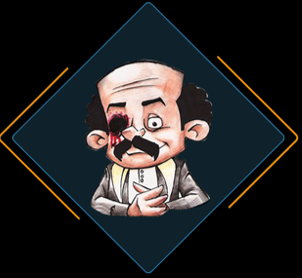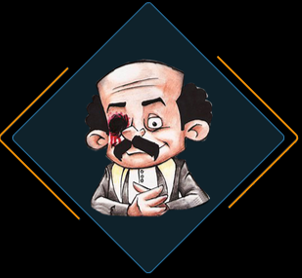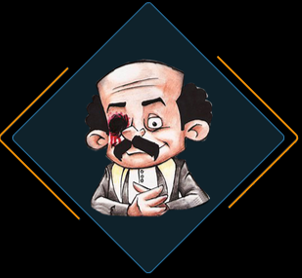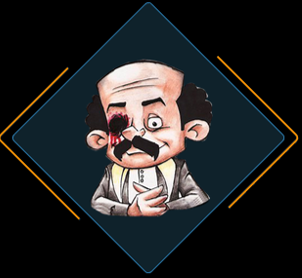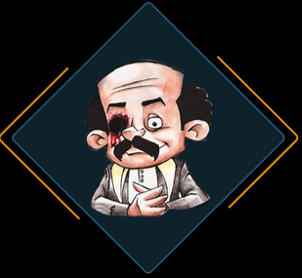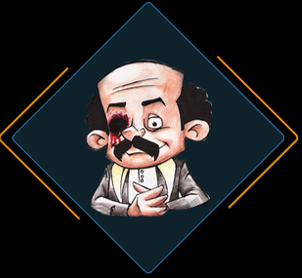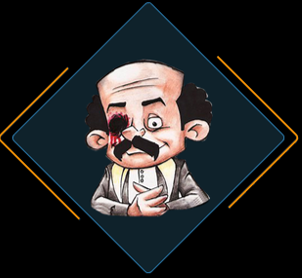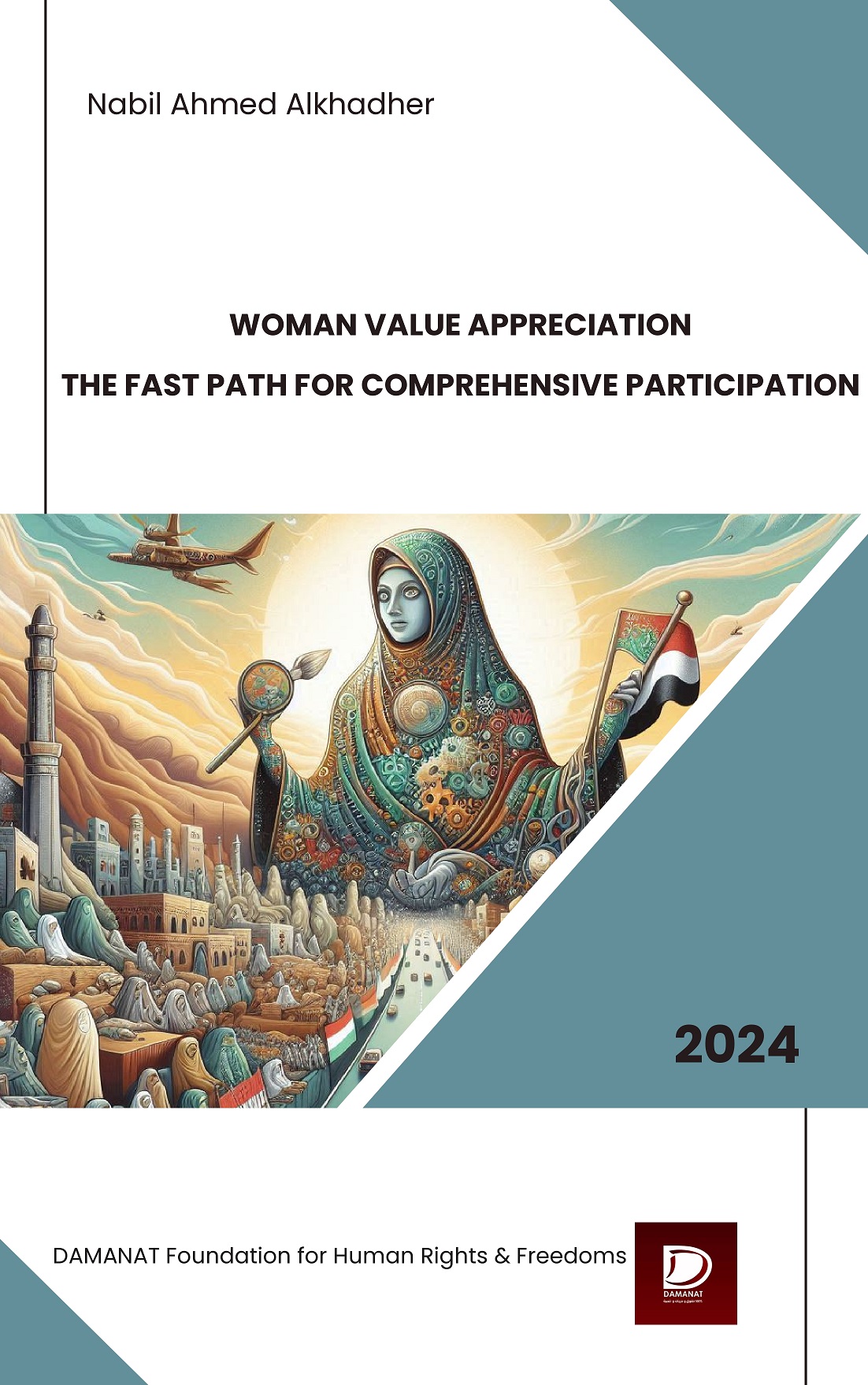Sun,Dec 14 ,2025
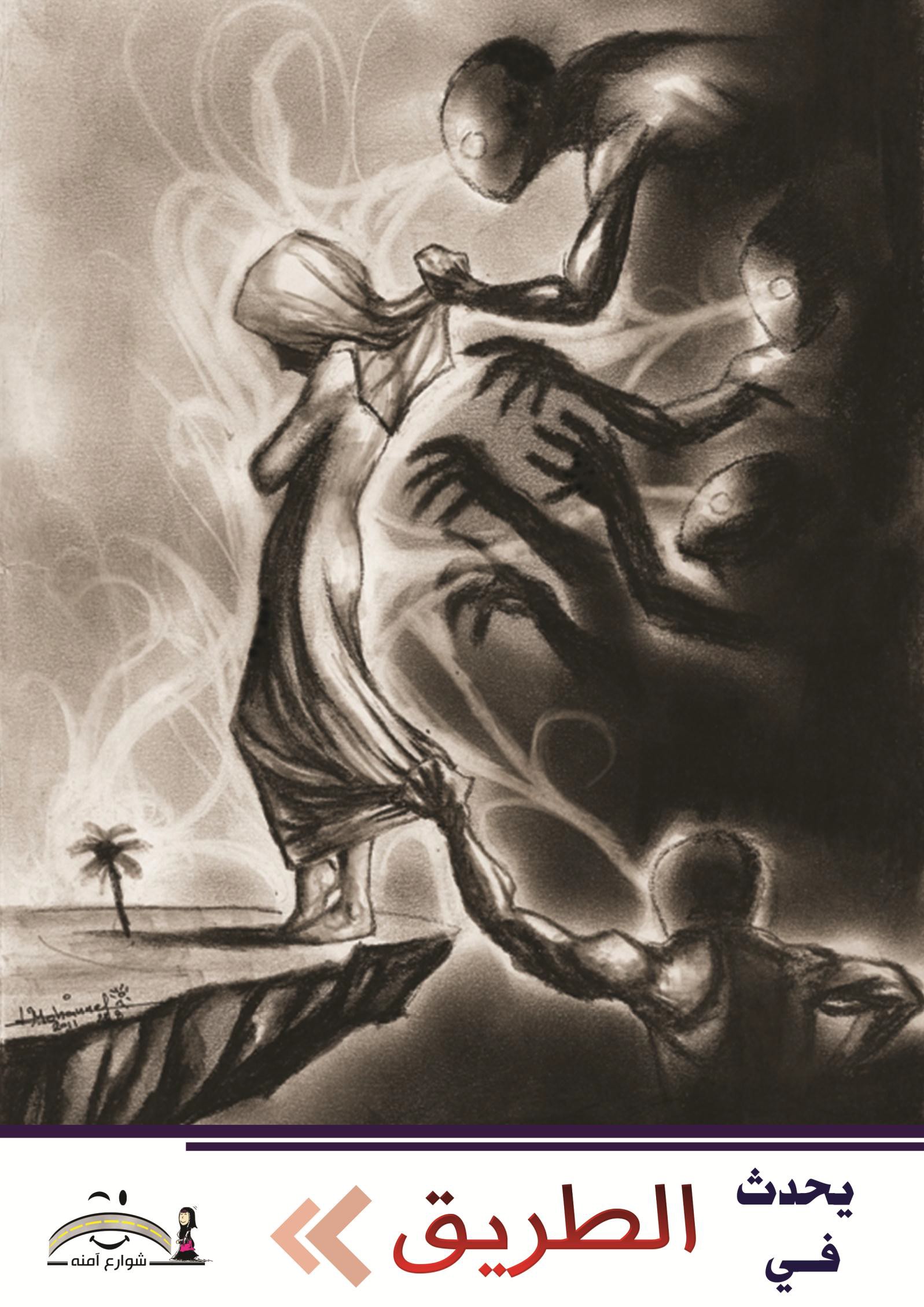
Happens on the Way- Documenting all violations, Monitoring culture
2025-04-25
The book "Happens on the Way" issued by " Safe Streets Campaign for Anti-Streets Harassment" provides footages and scenes of short stories of a group of women and girls who have experienced one or more incident of sexual harassment, how they dealt with according to their vision of street's culture and its reaction toward the girl who declare the incident of harassment.
The book extensively provides the street's point of view which often holds the girl full responsibility for harassment under justifications (Clothing - time - place - harasser personality; his influence, power, social status and finally her personality).
In light of these determinants, the street often decides its judgment according to each case. In my opinion, this is one of the most important problems of increasing harassment, as the street has no right to rule or no ability to judge fairly in this matter.
The book also touched on the role of modern means of communication in this matter, meanly electronic harassment, these means including phone, mobile and Internet, which are modern communication means introduced to Yemen recently, and it had advantages and disadvantages, of the negative uses are sexual harassment.
In the following, a review of some of the stories which have tried to present a vision on community culture and how they consider sexual harassment through the experience and stories of different women.
Trauma in a Story "On Paralysis Chair
In the story, the writer tries to understand the Yemeni street's perception, and how crime is seen with a different logic from all the countries of the whole land, through dominance of tribal stand on the legal attitude, such situation is known in an environment such as Yemen, where religion or tribe prevail over the state.
The story, in brief, tells of a kidnapping, but the law does not seem to have appeared in the story in any way, a negative tribal attitude prevailed on the issue, and then, it provided solutions are not necessarily satisfactory to the girl, as much as it was satisfactory to her father, who did not consider his daughter as a person had been kidnapped, the extent to which this crime affected her physical, mental or psychological integrity, but rather, he was more interested in restoring his reputation among the people by arbitration, apology and bloodshed of a number of bulls which is usually slaughtered as a ritual of apology. This was enough for him to restore his reputation (which, in fact, was not exposed to any harm by the girl). There was no need for the paralyzed girl to have a cure as much as the family name and reputation.
The writer tries to convey that idea says; when a woman is a victim, it does not matter that her rights are restored, but it is important that her family's rights restored, because she is not a freestanding person, as much as she is a commodity, those who have damaged the commodity must pay its value to the owners because it(she) has become damaged ... When paying, there is no need to return the commodity to its original form, but leave it damaged forever.
This attitude is frightening. Some negative tribal values prevail over the lives of the people. The tendency of these values is to uphold the status of men over the status of women, it works to restore all rights of men while women's rights are neglected.
Trauma in the story of the Daughter of the Aunt " Om Arafat"
In the same vein, the writer detailed another story in which the girl protagonist's age has not been mentioned in the story, but the writer indicated that she is in elementary school, which means that she is in the age 13 or 14, therefore, she is a child.
Of course, the laws have "specificity" in dealing with children on one hand, and in self-defense on the other hand. But did society try to understand these laws? Or did it look at the heroine of the story as a child, and the matter must be addressed in a manner that does not harm the girl in any way ... Of course, "NOT".
The girl's mother was sentenced to pay full fine, hospital charges and everything that would punish the woman and her child for their responding to sexual harassment in a way that ensures their human dignity.
What the writer "Huda Jaffar" tried to convey is that society does not care a lot of women who are being harassed or even raped, the women are not among the deals' components which has been reached to solve such problems as much as the real focus is on restoring the dignity of men and compensating them appropriately, thus, every girl who was subjected to any kind of harassment should keep silent because the punishment will only be attributed except on her, "This is an unjust and strange social view".
Indecent act as a New cultural trend
The character, in this story, created by the creative "Huda Al-Asbahi", narrates the issue of the indecent act of some young people. This issue is linked to women going out of home to work or study, and how the exploitation of this issue by men began to take more serious curves from chaste flirtation, to shocking behaviors, including scandalous acts, which did not exist in the past.
Of course, there are laws in this regard, but these actions are rarely reported, which makes them widespread in many places where women are present.
"Cover Up" in the story of "That Despicable"
What enhances the consideration of harassment as a negative act in the community is "Cover Up", as many young people do when they experience the harassment of girls or "cover up", by going out far away to do this!
The harassment can be done on this basis. Because, as it seems from some other stories, harassment is beginning to take a positive trait in young people, as it is considered a kind of manhood, or a way of showing audacity in front of friends. But the harasser in the story of that "Despicable" suggests that he does not believe in the positivity of what he is doing, thus trying to hide. this is an area that can be worked on in the future in terms of introducing sexual harassment as a form of violence against women, and as a negative and immoral factor in community culture.
Women as an Influencer in Community Culture in the story "I Will Be Strong":
Unlike other stories created by the writer " Huda al-Asbahi", it seems that power and influence dominate in the third story, as well as, the positive influence of women in the surrounding community in the field of sexual harassment.
Women as workers .. Women as educated person need to get out of her home daily and need, among others, mechanisms to protect herself against sexual harassment on the street.
In the story, the "I will be Strong" character had power that changed the street's view toward women. Such power contributed to making decisions in the community to limit harassment by joining women together to generate laws to protect them.
Making commitment and respect in this story and creating a culture that respects and protects women is a role that must be played by women to protect their gains in education and work. This is what the story tried to convey through the character and the actions in the story.
We believe that introducing a positive model of a woman who is active in her society and who is able to develop a culture that respects women is something special and should be reviewed, generalized and promoted.
Technology as a facilitator of harassment in the story "Chat "
It does not seem an exaggeration, if we say that the mobile phone is in the possession of every person, including women even those women in the village, this right cannot be described as negative act, but some of its uses can be called negative including sexual harassment.
Culture from abroad, in the form of information via the internet or mobile phone, significantly harms the concept of protection of women from sexual harassment, threats and inconvenience, in the absence of special programs which dedicated to promote the privacy of women and human rights as a whole, in addition to the right of women to be protected from all forms of violence including Violence, bullying and electronic harassment. This is what the male character did in the Story of " Chat" in terms of exploitation of modern technologies in facilitating access to women.
What the story wants to present in overall is the fact that the investing in new tools, new mechanisms and tactics online or in mobile should not be supported or justified for human rights violations against women and sexual harassment. In such cases, effective laws must be adopted to address and punish harassers, especially with the enormous ability of new media and mobile media to document or record anything happens.
From global culture to traditional culture
The story of "Chat" attempted to build on what the modern means of communication did of facilitating harassment, in light of the fact that the laws did not keep pace with this rapid development, the rapid spread of personal computers, the possibility of access to the Internet, and also the fastest spread of mobile phones, which have become with almost everyone.
In the story of "Among Men" a rural mother who lived in the city, still remembers the life of the village in which woman goes to collect woods, to bring water and to perform dozens of other jobs, was not exposed to any kind of harassment or bothering, even if she goes far away from her home, the fact that the true woman is who grow up among men and can protect herself from them and enforce her respect on them.
This story shows that traditions were motivating women, working and protecting her in various ways. The mother wants her daughter to have the same biography of work and activities, even if she is living in the city, as the shy girl from the point of view of the mother is a girl easily accessible, and easy to set her up. Unlike the strong girl who is able to work, controversy and dialogue with any individual in front of her.
Returning the girl to her shell or introversion as a result of her first molest incident brought upon her the mother's wrath. But once the girl returned to her normal life, she was able to protect herself.
The mother, in this story, wants to tell her girl that submission is the first way of tyranny and violence against women.
Working Women as a target
In the story "Bite my Loaf ", it was clear that the woman working had been subjected to harassment by colleagues or her manager ... which led finally to leave the job.
What the story tells here, is the inherent the culture of going women to work with culture of respect her by others, as well as making deterrent solutions to address any violations that may lead women to return to her shell at home, including addressing problems of work itself or problems that go in parallel with work, such as harassment or disregard of her economic return in the labor market.
What the story means in this area is that we are at the gates of development, we must support each other, none of us should not violate the rights of the other.
Patriarchal Culture.
In the story " Dada Footsteps Threshold" ... a young who has recently entered the youth stage gives a picture of the world - that he heard about from the tales of friends or older peers, in addition to his observations throughout his life to sanctify the male at the expense of women on Yemeni street. As a result of this background, he went out to the street imagining that all girls on the earth will fall in love with him from the first steps of him in the world of manhood.
A culture that is largely applied in the context of young people or those who are entering the youth stage, is often presented to women on the basis of "refraining when they wish", thus, any word issued by a woman in this regard as a refusal means acceptance, but in other ways.
This culture which gives a child, adolescent or teenager, privilege over the females in his social surroundings, makes him extend this feeling, even at a collective level, to believe that any woman is supposed to not refuse his gifts or offers or his requests.
Access to Adolescent age by teenagers, with this perception that prevailing among adolescents, is a gateway to sexual harassment. In this sense, it is necessary to work on this culture in children, adolescents and youth contexts, as reported by monitoring the story of such actions.
Legal culture in a story " Oh Crown of my Head"
This story monitors community treatments for issues of sexuality. As it is known, in this case, a number of people gathered to discipline the harasser or as it was in the commercial markets, there were some security forces arresting the harasser and shaving his hair, as happened more than once, especially in the days of heavy shopping before the holidays.
The story monitors the lack of effective laws or non-enforcement of existing laws dedicated to protecting women from sexual harassment, which forcing the public to create its own penalties in this regard, this is inappropriate, thus, the existence and enforcing the existing laws will greatly reduce this phenomenon, because community remedies are not effective, its temporary and seasonal instead. Furthermore, the community's view of the harassed girl is often negative, which forces the girl suffering from harassment to be silent.
The existence and enforcement of the law and its coverage of all aspects of harassment anywhere and at any time is the real way to address this phenomenon. Thus, enacting and promoting laws, making them as a general culture of society is the best solution.
Well-informed religious culture is an essential requirement
The story " I will not Fall into the Clutches of the Tale" monitors the process of expansion of extremist religious thoughts with regard to the work of women and going for work, without considering the religious factor as a catalyst for women's work and her protection. This is what the hero of the story told us, who heard many stories and tapes about women and the false vision of women among the cassettes venders and their customers who consider her as a catalyst of sexual harassment, rape and moral decay without looking at woman as a supporter of moral development and a contributor to be applied.
Existence of enlightened religious culture supports development. Women's participation in public affairs is the most successful way to protect women from sexual harassment and various forms of ill-treatment, degrading or immoral treatment.
Silence due to stigma in the story "Silence"
The heroine of the story of "Silence" deals with sexual harassment on the basis of the principle of incognito "Taqiyyah" and ignorance, so that the situation does not develop to the dire consequences, based on the principle that the general public on the street does not necessarily understand the circumstances of the sexual harassment incident. People on Street, especially the harasser, often classify any quarrel between a man and woman as (Disagreement on the price - women's clothes - harassment time - place of harassment).
In any harassment scene the stigma often, those ideas created by those around the harassment scene, have been attached to the girl, forcing her to remain silent.
The Book "Happens in the Way" as a start
The book, which contains a large number of stories, tries to provide a vision and a literary dealing, experiences and stories on the issues of sexual harassment with paying attention to internal feelings and the extent of trauma that affects woman as a result of harassment. The book is one of a set of books that began to go through this way, there is a possibility to do more, to document further experiences and stories in order to demonstrate the major negative value of sexual harassment and its impact on women.
REFERENCES
Nabil Ahmad Alkhadher et al, "Happens in the Way", publications of the Safe Streets Campaign, Yemen, 2012
